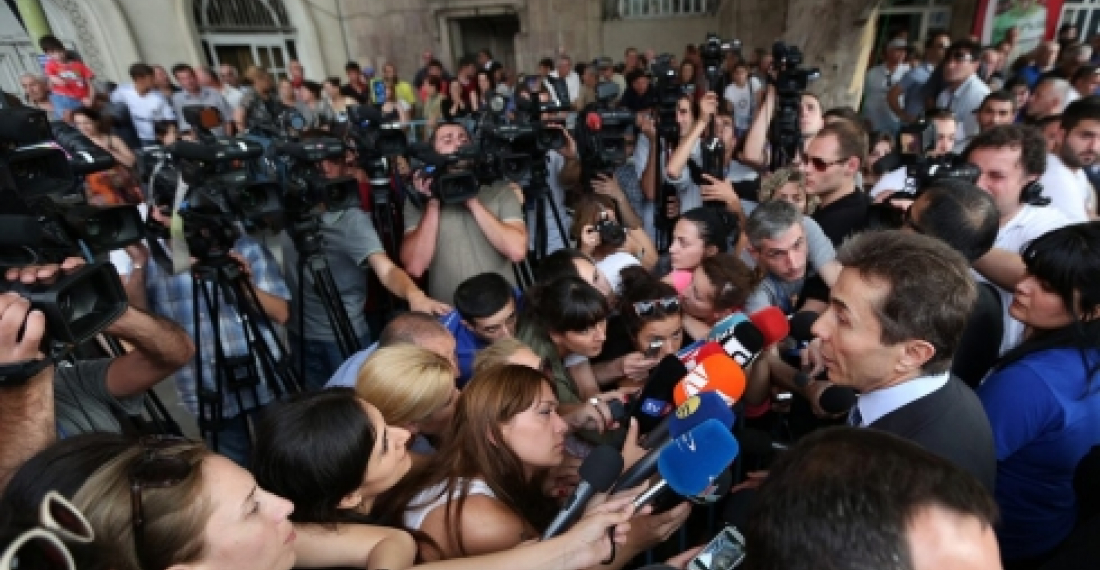As the process of political transition in Georgia gathers pace, and with the prospect of political co-habitation between the two main political forces in the country, at least for the next year, the question now needs to be asked how the new situation will impact the region of the Caucasus as a whole.
In this special commentary for Caucasus Elections Watch Dennis Sammut analysis the impact of the “Bidhzina phenomena” on the Caucasus Region.
The Georgian Dream leader, Bidhzina Ivanishvili has kept his comments on foreign policy focused firmly on commitments to Georgia’s European and Euro-Atlantic aspirations, and some general comments on rebuilding relations with Russia. However some of his closest associates have spoken more specifically on the need to recalibrate Georgia’s foreign policy to make it more focused towards the region and the immediate neighbours.
In an exclusive interview with Caucasus Elections Watch three weeks before the election, one of the Coalition leaders, Irakli Alasania, now designated as Deputy Prime Minister and Minister of Defence in the new Government, stated “Georgia’s Foreign policy should be refocused on establishing regional stability in the Caucasus. It should concentrate on assisting the neighbours to settle their differences and build a more integrated region.”.
A few days later, the Georgian Dream Foreign Affairs spokesman, and now designated as the head of the Foreign Affairs Committee of the new Parliament, Tedo Japaridze, speaking in Brussels, also called for a refocus of foreign policy to give more attention to regional issues.
These are welcome developments that would be appreciated in western capitals, where it was always hoped that Georgia could play a more positive role in regional issues.
In the Caucasus itself, the Governments of Armenia and Azerbaijan remain somewhat baffled and cautious about developments in Georgia. In the run up to the elections the two governments had failed to open proper lines of communication with the Georgian Dream opposition, fearing that they would upset President Saakashvili. The votes of the Armenian and Azerbaijani minorities were dutifully delivered to the ruling party with a nod and a wink from Baku and Yerevan. This perhaps will be the last time that this will happen.
All sides now need to reach out to each other. The region desperately needs regional co-operation and Georgia can play an important role in facilitating this.
It will not be easy, and if the past is any experience, it can even be unpleasant. However the benefits for Georgia in becoming a regional hub are enormous, and it will also add a lot to its political kudos. This is however not a one way affair. Georgia has problems of its own with its large neighbour Russia. Both Armenia and Azerbaijan need to weigh in to help normalise relations between Georgia and Russia. There is a win-win situation in this for everybody – even if the major problems such as that of the unrecognised entities remain unresolved for some time to come.
Georgia’s dealings with its own Armenian and Azerbaijani minorities need to become more sophisticated, and less patronising. This is a sensitive issue for Georgia but it is now time to bring these communities properly within the political process, not through symbolic actions but through proper empowerment.
The election campaign has shown just how determined and resourceful is Bidhzina Ivanishvili. Those who thought of him as simply a rich man now need to reassess their evaluation. Ivanishvili is much more than that. He is a phenomena that has hit Georgia like a storm, and can do likewise for the region, shuffling all the certainties of the past.
Ivanishvili needs to take the bull by the horns on the issue of regional relations and show that he means business. There are things Georgia can do unilaterally without waiting for anybody else. Ivanishvili should move fast to build relations with the leaders of Armenia and Azerbaijan, and they on their part should welcome this and respond with equal enthusiasm.
This comment was contributed by Dennis Sammut, Executive Director of LINKS.
The article was first published in electionswatch.org
Commentary
OPINION: Dennis Sammut - "The “Bidhzina Phenomena” and the Caucasus Region."







